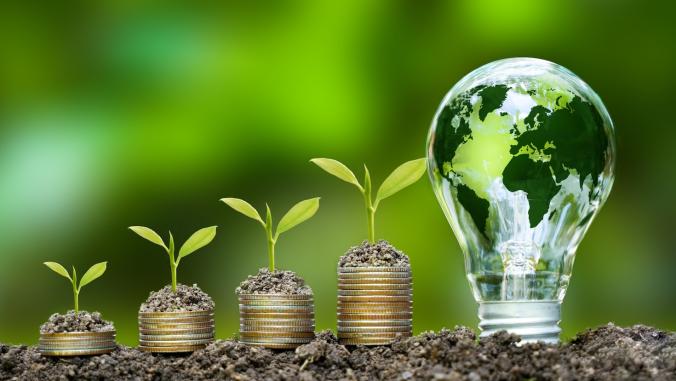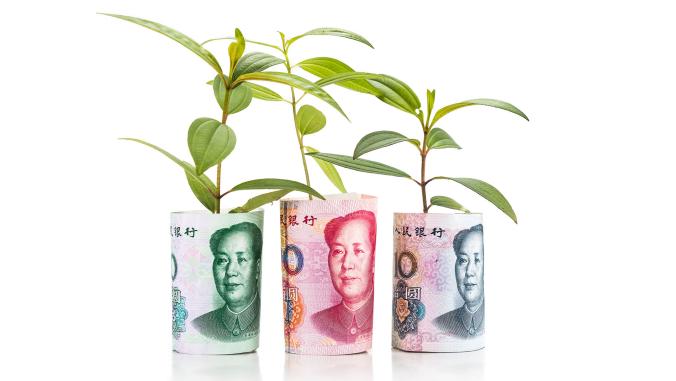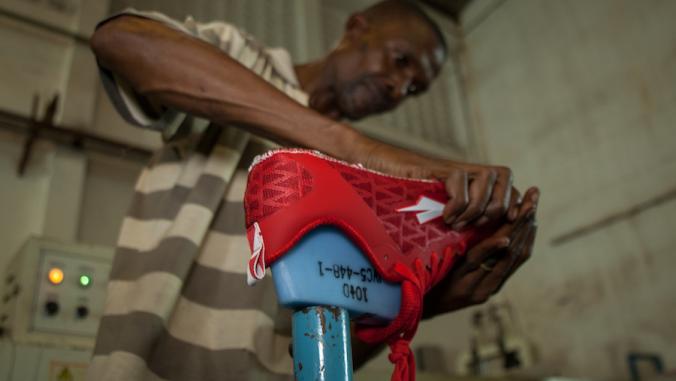Innovating in the green economy: U.S. ventures solving climate change
This new series highlights women-led ventures in the green economy. The featured startups range from early to late stage, and are solving climate change through innovative solutions in the food & agriculture and energy sectors. In addition to introducing the reader to the breadth of concrete solutions pioneered across the country, I offer insights into the employment and talent side of the startups.
Nestled in downtown Oakland, California, sustainable food and agriculture startup Kuli Kuli has roots more than 7,000 miles away.
Founder Lisa Curtis was introduced to the moringa tree while serving as a Peace Corps volunteer in a small town in Niger. A vegetarian whose local diet consisted mainly of millet and rice, Curtis was able to curb her malnourishment by adding moringa to her daily regime. Her health turnaround sparked an interest to introduce the benefit of the moringa plant to the United States. When Lisa returned to the U.S., she and her co-founders began creating food products from sustainably sourced moringa leaves. They started small – producing health bars in small batches and selling the goods at farmer’s markets. The product line now includes teas, powders for shakes, health bars, and energy shots—available in over 6,000 stores.
Moringa is not your come-and-go food fad. It’s difficult to directly compare to any one plant. Like kale, it’s a green superfood, yet even richer in nutrients; the taste profile is similar to matcha – with an earthly, mild green flavor; on the shelf, you will likely find it next to other superfoods such as goji berries. Here is what moringa offers:
- Iron (50% of daily value for one tablespoon of the Kuli Kuli powder)
- Calcium
- Vitamins A and C
- Phytochemicals (polyphenols and glucosinolates) that have antioxidant and anti-inflammatory properties
- Highly digestible protein
- All 9 essential amino acids
- …And the catch all, it’s Vegan | Soy Free | Non-GMO | Gluten Free | Dairy Free
Moringa therefore finds a market as a green superfood that can be consumed in different ways for different dietary needs.
If the goal of “susty ag” is to meet today’s food needs without compromising the ability of future generations to meet their needs, then cultivating carbon emissions-free and regenerative agriculture products is an imperative. Project Drawdown found that in aggregate, agricultural solutions were more impactful to reverse global warming than energy solutions. As climate change continues, droughts are becoming more frequent and more acute, and sea level rise is leading to salt intrusion inland. Moringa, native to the tropics, thrives in drought-prone regions and can tolerate salt. Simply put, moringa is climate-smart.
Kuli Kuli’s supply chain reflects a dual purpose: (1) to provide a climate-smart crop for vulnerable communities that can be sold for economic gain and used directly for nutritional needs and (2) to offer a nutrient dense green that encourages a plant-based diet in the US. To achieve these goals, Kuli Kuli partners with three different co-manufacturers, and over 1,000 farmers across 40+ farms. They currently employ nine full time staff members in Oakland and a large part-time field team (20+ people who are in charge of product demonstrations and 30+ sales representatives).
The staff at Kuli Kuli are mission-driven (four out of the nine FTEs are former Peace Corps volunteers). “Because we are pioneering a new ingredient, we look for people who have shown that they have picked things up quickly and are willing to do that again,” says Curtis. In addition to evidence of leadership, illustrating an interest in sustainable agriculture is important, and this could be through an internship or volunteer experience such as WWOOFing or even joining a CSA to understand seasonal produce. While there are certifications involved in the industry, such as a food handlers license and PCQI (Preventive Controls Qualified Individual), these certifications are not a pre-requisite and are provided on-the-job at Kuli Kuli.
For those looking to break into the food side of the sustainable ag space, Curtis maintains that there are opportunities at every educational level and background. “This is a relatively easy industry to break into because you can start small. I know people who started food companies after working as baggers at Whole Foods,” Curtis explained.
The heads of marketing, sales and operations and Kuli Kuli all have more than ten years experience in the natural foods industry and at least a bachelor’s degree. Curtis’ approach to human resources is, “you find people who are smart and talented, teach them what they need to know, and allow them to run with it.” Kuli Kuli hosts both three-month internships and six-month fellowships, and the 16 people that have gone through these programs are all gainfully employed.
Kuli Kuli Is backed by a number of philanthropic and for-profit investors, including InvestEco, S2G, Kellogg’s eighteen94 Capital, the Clinton Foundation, Village Capital, Brad Feld and Mary Waldner. And with their recent investment round of $4.5M, Kuli Kuli is in growth mode—and hiring talent. Kuli Kuli doubled their staff in the last year and is looking to hire two to four full-time operations and sales members in 2018. They post positions on FoodTech Connect, Idealist, Craigslist, the B-Corp job board, and some university list serves. “A lot of people have come to us through the press,” Lisa highlighted. Kuli Kuli’s business plan includes growing the category for moringa and pioneering other new ingredients for U.S. consumers, and there will be corresponding job opportunities as it does so.
Agriculture, food, and related industries represent about 5.5% of U.S. GDP, contributing around $992 billion each year. Transforming this industry to be sustainable and regenerative is one of the biggest opportunities to address climate change while creating economic opportunity.





